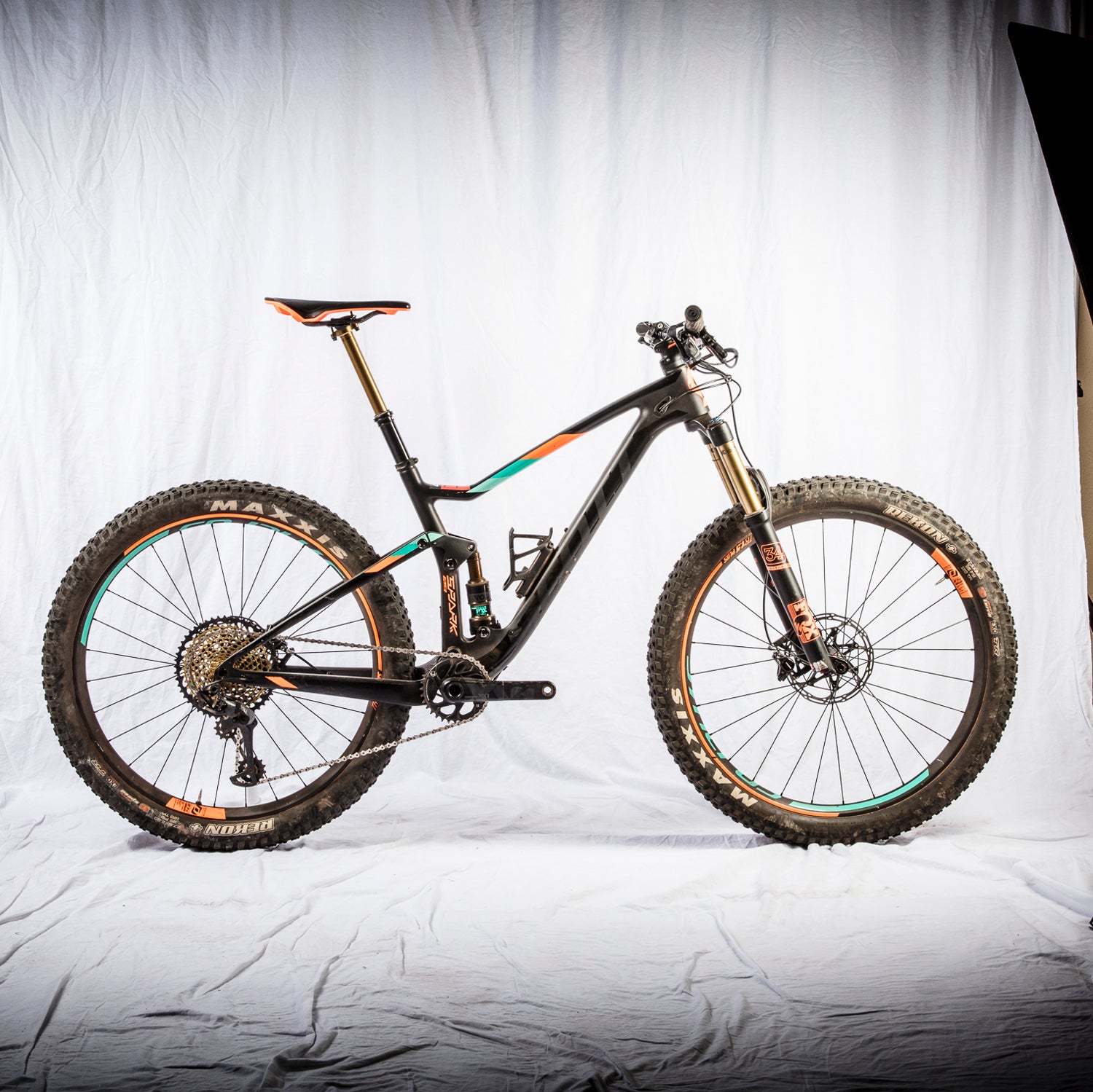Few companies have pushed the boundaries of lightweight bike design over the past two decades like Scott—its sub-900-gram CR1 road bike launched the weight wars in 2003—so it came as no surprise that the debunks the view that plus-size bikes have to be ponderous and sluggish.
At a hair over 26 pounds for a size medium, this 120mm full-suspension carbon trail bike feels unrealistically light with those big 27.5+ tires. In fact, the Spark Plus was lighter than every other mountain bike in the ���ϳԹ��� bike test, except for the , which has standard-size 27.5-inch tires. Scott didn’t fake the weight by spec’ing flimsy parts, either. The 130mm Fox 34 fork is plenty stiff for the task. And unlike the throwaway rubber that many brands resort to for curb appeal, the Spark Plus comes with a pair of meaty , my favorite tires in this class for their aggressive, confidence-inspiring tread and supportive but supple-feeling sidewalls and casing. (If anything, Scott could have gone a bit lighter with a faster-rolling Maxxis Ikon+ out back, but I’m not complaining.)
The other big news on this bike is the revised suspension, which spans the Spark line. Though Scott kept the single-pivot of previous generations, the old top tube–mounted design is replaced with a rocker link and pivotless swingarm. The setup retains top-end sensitivity but feels much more progressive, even through the length of the travel. Paired with a reasonably slack 66.9-degree head angle and moderate-length chainstays (438mm), the frame is surprisingly plush and capable. (The 29-inch and , which also use this new rear suspension, must surely be some of the best-feeling and lightest XC bikes going.)
The combination of light weight and aggressive suspension design make for a unique ride. On one hand, the Spark Plus pedals with the ebullience of a race machine. On the other, it ate up Sedona’s chunk and chunder with the confidence and assertiveness of a bigger bike. It was almost like riding a pedal-powered motocross machine and was definitely one of the liveliest steeds of the entire test. So, no, plus-bikes don’t have to be slow-rolling rock crawlers.
The only real complaint we had with the Spark 700 Plus Tuned (beyond the convoluted name) was with the Twin-Loc lever that controlled the three stages of both front and rear shock simultaneously. While we’ve liked the design in the past, these days, combined with a shifter and dropper post lever, it all gets a bit cluttered on the bars. One other niggle: the 760mm bars were a bit narrow for all of the bike’s meaty goodness.
There’s also that price tag: $8,000 for our top-line model might be on par with (or cheaper than) most of the competition, but it’s still more than many are willing to spend. Thankfully, Scott has five additional models, ranging from $5,000 for the XT-equipped 710 down to the $2,700 alloy 730. Given the shared frame design, they should all be lighter than comparable bikes from other brands. Meaning that, overall, the Spark Plus might be the liveliest plus-bike money can buy.


